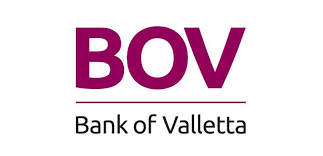On the 20 June 2022 the CEO of the Gozo Business Chamber, Daniel Borg, intervened during the Standing Committee on Gozo Affairs in the Parliament of Malta, which discussed the fast ferry service between the two islands.
In his intervention Daniel Borg highlighted that accessibility in all its forms is important for Gozo, and that it was significant that the Standing Committee selected this topic as the first item of discussion during its first meeting in this legislature. He highlighted how the fast ferry service introduced on the 1 June 2021 was a game changer for Gozo, especially its complementarity with other services being offered, such as the electric buses in Gozo, and the lift to Valletta. In his presentation Daniel Borg indicated how the service developed when it was first introduced on the 1 June 2021. The data available indicated that the number of trips moved in line with the number of passengers carried, with a drastic reduction in both trips and passengers after September 2021.
In his considerations Daniel Borg remarked that when this service was first launched ,foreign tourism to Gozo was literally non existent or very low, and that a lot of work was being done remotely. Indicating the timetables of both operators in June 2021, and the consolidated timetable in 2022, he highlighted how during weekdays the voyages decreased from 18 to 10, and during weekends the voyages decreased from 22 to 10 per day. He also highlighted how while positively the service was first integrated with the ‘Tal-Linja card’ when it was first introduced, this facility was then removed. Positively, the tickets of both operators can now be bought one way.
Daniel Borg remarked that “when the service was initially launched, there was a highly competitive environment. There were trips sometimes even every half an hour. It was evident that at that stage operators were cannibalising themselves. However, it was also evident that operators had problems with this schedule, even to enter the port of Mġarr, at certain parts of the day given the existing limitations of the same port. While competitiveness is good, we now have a completely opposite situation, where two operators have now agreed on the same schedule. We can now nearly say that we went from a situation of extreme competitiveness to a situation of quasi monopoly. This is not an acceptable position because the level of service is being dictated by one side only”.
He remarked how there were many things which impeded the service being offered on a sound footing mainly: that the timetable of the service had been changed frequently; the frequency of the service; and the gaps in the service which does not make it practical to use the service at certain times. The schedule for example was not being changed to reflect the changes in demand during the summer months when cultural activities are organised on both islands, with the last fast ferry departing from Mġarr in 20:15, and from Valletta at 21:15.
The Government can intervene by issuing a tender under a public service obligation for those services which are not currently being offered during certain times of the day. Daniel Borg highlighted how “the service is good, but to move forward there needs to be a serious and transparent discussion, from both sides, both from the part of the Government and that of the operators. One cannot speak of a sustainable service, when this worked during very difficult times, and now this is being reduced as the situation after COVID-19 is returning to normal.” He also remarked how the sustainability of the service can never be assessed if the same operators limit its potential.
Accessibilty remains key for Gozo. He concluded his intervention by highlighting that the Chamber had been in favour of a fully competitive environment when the service was first issued. Nonetheless it is clear that some form of regulatory intervention is required to ensure that the service remains sustainable. Daniel Borg siad that “we cannot risk to lose this service again. However, transparency and good will on the part of the operators is needed as well to ensure a just situation for everyone.”
You can access the full presentation and intervention here:
You can follow the video of the meeting here.
























